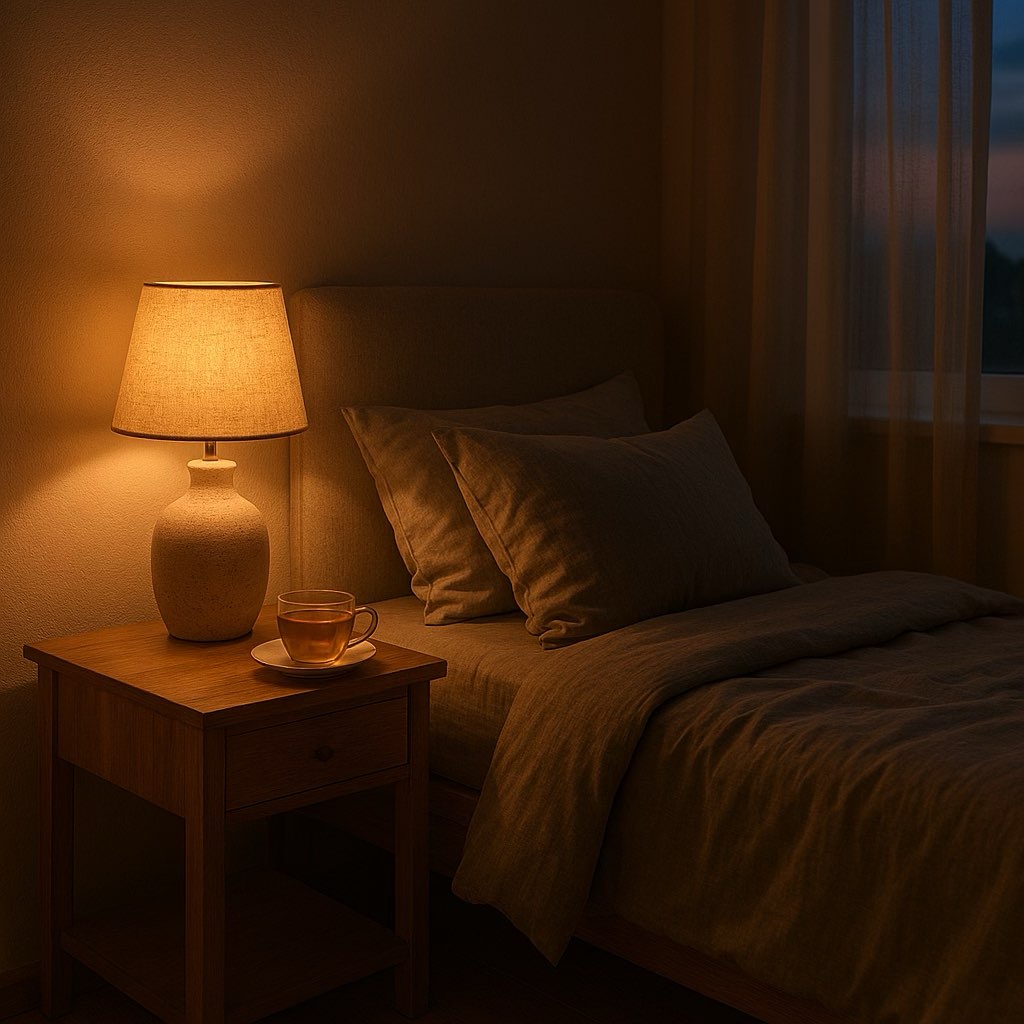Tossing. Turning. Staring at the ceiling. We’ve all had nights where sleep feels like a distant dream. While an occasional rough night is normal, chronic poor sleep can take a toll on everything from your mood and immune system to your ability to focus during the day.
Good sleep isn't a luxury; it's a vital pillar of health. The good news is that you don't have to resign yourself to restless nights. By building healthier habits—what experts call "sleep hygiene"—you can pave the way for deeper, more restorative rest.
Here are 7 practical, expert-backed tips to help you stop counting sheep and start getting the quality sleep you deserve.
1. Create a "Wind-Down" Ritual
You can't expect your body to go from 100 to 0 in a matter of minutes. Signal to your brain that it's time to sleep with a consistent, relaxing routine.
-
What to do: About 30-60 minutes before bed, put away your work, dim the lights, and do something calming. This could be reading a book (a real one, not on a screen!), listening to soft music, gentle stretching, or taking a warm bath.
-
Level it up: Add Epsom salts or lavender-scented bath oils to your bath for an extra layer of muscle-relaxing, mind-calming bliss.
[Link: Discover our Bath & Relaxation products]
2. Optimize Your Sleep Sanctuary
Your bedroom environment plays a huge role in your sleep quality. The goal is to make it dark, quiet, and cool.
-
What to do:
-
Darkness: Use blackout curtains to block streetlights. Even small amounts of light can disrupt sleep.
-
Quiet: If you live in a noisy area, consider using earplugs or a white noise machine.
-
Coolness: Most experts agree that a cool room, around 18°C (65°F), is ideal for sleeping.
-
Pro-Tip: A comfortable sleep mask can be a game-changer for blocking out all light, helping your brain produce the sleep-inducing hormone melatonin.
[Link: Shop Sleep Masks & Earplugs]
3. Disconnect From Your Devices
The blue light emitted by phones, tablets, and computers is notoriously disruptive to sleep. It tricks your brain into thinking it's still daytime, suppressing melatonin production.
-
What to do: Make a firm rule to put all screens away at least one hour before you plan to sleep. Charge your phone across the room to avoid the temptation to scroll.
4. Mind Your Food and Drink
What you consume in the hours before bed can significantly impact your night.
-
What to avoid:
-
Caffeine: Its stimulating effects can last for hours. Avoid coffee, tea, and soda after 2 p.m.
-
Heavy Meals & Alcohol: A large meal can cause indigestion, and while alcohol might make you feel drowsy initially, it disrupts your sleep cycle later in the night.
-
What to try: A small, sleep-friendly snack like a banana or a handful of almonds, or a warm cup of caffeine-free herbal tea like chamomile.
[Link: Explore our Calming Herbal Teas]
5. Consider Gentle Sleep Supporters
For nights when you need a little extra help, certain supplements can gently encourage sleep without the grogginess of stronger medications.
-
What to look for:
-
Melatonin: A hormone your body naturally produces to regulate the sleep-wake cycle. A low-dose supplement can help reset your internal clock.
-
Magnesium: This mineral can help calm the nervous system and relax muscles.
-
Herbal options: Supplements containing Valerian Root, Chamomile, or L-Theanine are popular for promoting relaxation.
[Link: Browse our Natural Sleep Support Supplements]
6. Get Moving During the Day
Regular physical activity is proven to improve sleep quality. Exercise helps reduce stress and anxiety and can deepen your sleep. Just be mindful of timing—a vigorous workout too close to bedtime can be overstimulating for some.
7. Know When to Talk to a Professional
While these tips can help with occasional sleeplessness, they aren't a substitute for medical advice. If your insomnia is chronic, severe, or causing you significant distress, it's important to speak with your doctor or a pharmacist.
Your Journey to Better Rest Starts Tonight
Reclaiming your nights is possible. Start by incorporating one or two of these tips into your routine and see how you feel. A peaceful night's sleep is one of the best forms of self-care.
Need a helping hand? From gentle melatonin supplements to calming herbal teas, [Your Website Name] has a wide range of products to support your sleep journey. Explore our collection and have wellness delivered to you.

